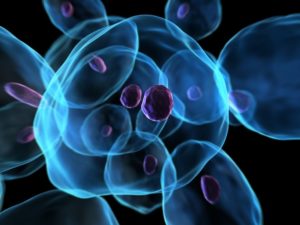Home » Cancer: What is Cancer?
Cancer: What is Cancer?
 Cancer Disease
Cancer Disease
“Cancer”, cancer disease, is a broad term that describes a disease where normal cells in the body start to grow and divide uncontrollably.
The outcomes could be cancer tumor, or “tumor” in short, damage to the immune system and the body which could lead to death.
During cancer disease certain types of tumors grow faster than others and some are visible and called “Solid Tumors” as they are developed in a tissue, such as, breast cancer, and some are not visible, such as, leukemia and these are called “Hematological cancers” as they developed in the blood formation path.
Most cells in the body have a specific role, they divide in an organized manner and their life cycle is defined, thus they die (also called “Apoptosis”) and new cells are generated.
Cancer cells miss both the apoptosis mechanism and the mechanism in charged of their normal division.
The National Cancer Institute, NCI, highlights the fact that for a certain group of cancer patients, the best treatment option is to join one of the many clinical trials existing worldwide aiming to increase their chances of therapeutic success.
Causes of Cancer Disease
There are different and known factors which cause cancer and yet, there are many other factors which are still unknown.
Among the known cancer disease causes, one might find:
- Smoking
- Abused Alcohol consumption
- Excessive weight
- Lack of physical activity
- Poor nutrition
- Sun exposure
- In the US, 87% of morbidity are diagnosed at age 50 years old and on
- 5-10% are hereditary
Treatment Goals
Treatment goals are to kill the tumor, slow down and prevent disease progression for as long as possible and help reducing the symptoms and improving and preserving quality of life.
In stage 4 cancers which is metastatic cancer or stage 4 brain tumor, treatment goals are to prolong the patient’s life and improve and preserve quality of life
The treatment will be determined according to a number of factors, including tumor size, location and stage of the disease, whether it is a recurrent disease or not and the general status of the patient.
Standard Treatments
Surgery
There are two surgical options that are suitable to patients in stage 1 or stage 2:
- Radical Surgery
- Lobectomy Surgery
These surgeries target the removal of a lobe from the affected tissue or at times even removal of an entire part of organ with the goal to preserve, as much as possible, its normal function.
In case of stage 3, a surgery will be considered side by side with supportive care.
Patients with stage 4 are mostly defined as not-operable.
For the most part, before and after the surgery and recovery, patients will start supportive care.
Two main types of treatment may be offered to patients before and after surgery:
- Treatment prior to surgery is also called “Neoadjuvant”-
Usually this stage of treatment will involve chemotherapy and/or radiotherapy intended to reduce tumor size and improve the success of surgery.
- Post-surgery treatment, also known as “Adjuvant”-
This treatment seeks to cure and prevent the appearance of metastases or recurrence of the tumor.
Radiotherapy
This involves use of radiation at higher levels of energy aims to kill cancer cells remaining in the post-operative organ.
Radiation may also cause decelerated growth of the localized tumor remaining in the organ, or local recurrence.
In many cases, Neoadjuvant radiation will be used to shrink and reduce the tumor.
Chemotherapy
Chemotherapy is a medicated therapy which aims to shrink and erase cancerous cells and allow control over the disease.
Chemotherapy carries serious side effects, while its effectiveness is insufficient.
Chemotherapy’s impact has a range of side effects such as hair loss, loss of appetite, changes of bowel movements, fatigue, infection, hemorrhaging, pain and more.
Biological Treatments
Anti Angiogenesis Agents
Cancer tumors survive and thrive in the body by causing the body to produce a system of blood vessels around them that nourishes them and provides them with oxygen.
Anti angiogenesis agent is a biological antibody which harms the cancerous tumor ability to induce blood vessels growth around it from the environment where it is located with the aim to nourish it so it continues to grow and proliferate. In this way the tumor is “starved” to death.
Hormone Treatments
These are drugs aiming to alter the activity of specific hormones or to interfere with the body’s ability to produce specific hormones. In a cancer type where hormones have a significant role in its survival mechanism, such as, prostate cancer and breast cancer, this is the standard treatment approach.
Immunotherapy
Immunotherapy drugs assist the immune system in attacking the tumor. This type of treatment is very different from chemotherapy, for example, which directly attacks the cancerous cells but unfortunately also damages healthy tissues.
The immune system has “immune barriers” which serve to regulate the immune system and prevent it from attacking the body. In cancer these functions are readily activated and as a result, the immune system ceases to attack cancerous cells, enabling the tumor to grow and proliferate in the body.
Barriers known as PD-L1, PD-1 and CTLA-4 are found on T-cells and cancer cells.
Immunotherapy is a revolutionary strategy, and one of the most widely studied worldwide for its application to numerous types of cancer and various stages of the disease’s development. Treatment is generally provided in the form of an intravenous infusion.
Personalized Medicine
In this approach, the genetic profile of the specific cancer of the patient supports treatment recommendations or development of a cancer drugs directed to, for example, a specific mutation that was found in the genomic analysis. This strategy has not yet been proven as a treatment in all types of cancer.
Bone Marrow Transplantation
This treatment approach can be very efficacious in blood cancer patients, such as Leukemia and Lymphoma. White or red blood cells which were destroyed by chemotherapy or radiation, are removed from the patient’s body, strengthened in the lab and infused back to the patient’s body.
Targeted therapies (per mutation or per protein)
A mutation is a change in the cell’s DNA sequence, the genetic code of the cell. Mutations may occur when mistakes happen during the cell’s division process, or they may be caused by exposure to DNA harming agents such as free radicals, asbestos and others.
At times healthy cells mutations may cause the generation of cancer in the body.
 Cancer Disease Types
Cancer Disease Types
There are more than 100 types and some might say over 200, after all only in a Sarcoma cancer type, there are about 40 sub-types.
These are some of the most common types:
- Breast cancer
- Colorectal cancer, Colon cancer, Rectal cancer
- Lung cancer
- Pancreatic cancer
- Gastric cancer, Stomach cancer
- Liver cancer, Hepatocellular cancer
- Brain tumor
- Ovarian cancer
- Bladder cancer
- Prostate cancer
And more
Metastatic Cancer Stage IV
“Metastases” is the medical term for describing a condition where a tumor originating in a certain organ, “primary tumor”, is identified in another organ or in a distant location from the original organ, e.g., metastases of breast cancer can be found in the lungs, brain, bones and liver.
It is important to note, metastases are the same type of the original primary tumor, even if its location is in distant organs and so are the treatments regarded as such, for example, a treatment for a metastatic lung cancer that has spread to the liver, is determined by the treatment for metastatic lung cancer and not by the treatment for liver cancer.
To read about new treatments for Metastatic Cancer Stage IV >>
Metastases Formation
Cancer cells of the primary tumor can be released into the bloodstream and lymphatic system and circulate to distant organs or adjacent organs and tissues to the primary tumor and “settle” in them and grow.
There are different types of cancer which is known where metastases can be formed, for example,
- Breast cancer can spread to the bones, brain, liver and lungs
- Lung cancer can spread to the brain, bones, liver and kidney
- Prostate cancer can spread to the bones
- Colon cancer, rectal cancer, colorectal cancer can spread to the liver and lungs
Stage IV Metastatic Cancer and Recovery
In the vast majority of the metastatic cases, the treatments do not cure. Treatment goals are slowing tumor growth rate, prolonging life and reducing the symptoms of the disease, improving the quality of life of the patient.
The efficacy of the treatments is affected by many factors, among them are the type of cancer, number of metastases (also called “lesions”) and their location, how much cancer the patient has in his or her body, growth rate of the tumor lesions, medical history of the patient, background diseases, microenvironment between the tumor cells themselves, resistance the tumor has developed to previous treatments and other.
 Advanced Cancer Drugs, Breakthrough Treatments and Clinical Trials from Around the World for Cancer Patients
Advanced Cancer Drugs, Breakthrough Treatments and Clinical Trials from Around the World for Cancer Patients
The National Cancer Institute, NCI, highlights the fact that for a certain group of metastatic cancer patients, the best treatment option is to join one of the many clinical trials existing worldwide aiming to increase their chances of therapeutic success.
Currently, every patient will be offered the standard protocols described above. Sometimes the oncologist may suggest integrating these therapies with trials carried out in the Institute.
Advances in cancer therapies may be found in clinical trials prescribing cutting edge, interesting drugs, some of which have already been recognized by the FDA (US Food & Drug Administration) as “breakthrough treatments” and require further information input before being finally and fully approved.
An entire world of clinical trials and compassionate drugs and treatments are open and available worldwide. It is important to know which cutting edge treatments exist which patients can gain far more from them than the standard care offered.
For most patients with stage 4 metastatic cancer, current treatments are insufficiently effective. This gives rise to the need for innovative strategies with greater efficacy in fighting the disease.
It is important to remember!
Not every patient is eligible to enter a specific clinical study. The eligibility conditions must be strictly met and each case is reviewed separately to ensure that the study is suited to the patient and vice versa.
References:
- https://www.fda.gov
- https://www.ema.europa.eu
- https://www.health.gov.il/Pages/HomePage.aspx
- https://www.cancer.gov/
- https://www.cancer.org
- https://www.cancerresearchuk.org
- https://www.cancercenter.com/
Dear Reader,
This information is provided as a source of knowledge and does not constitute a medical consultation. For professional medical advice, see your attending physician. Information regarding drugs and commercial names belongs to the pharmaceutical companies.
To check if our service suits your case
We need to talk

Improve therapeutic outcomes, prolong life and quality of life, are our main business.
We support access to and expand cancer treatments beyond the standard of care, with the most advanced and innovative treatment options in the world, personally matching the individual cancer patient’s medical condition and with the support of top tier oncologists.
Article categories
קטגוריות המאמרים
Popular topics










